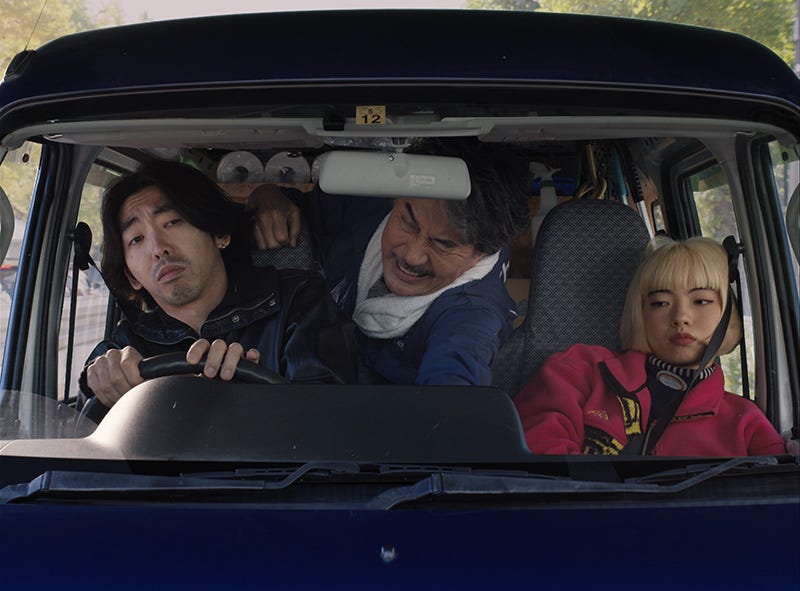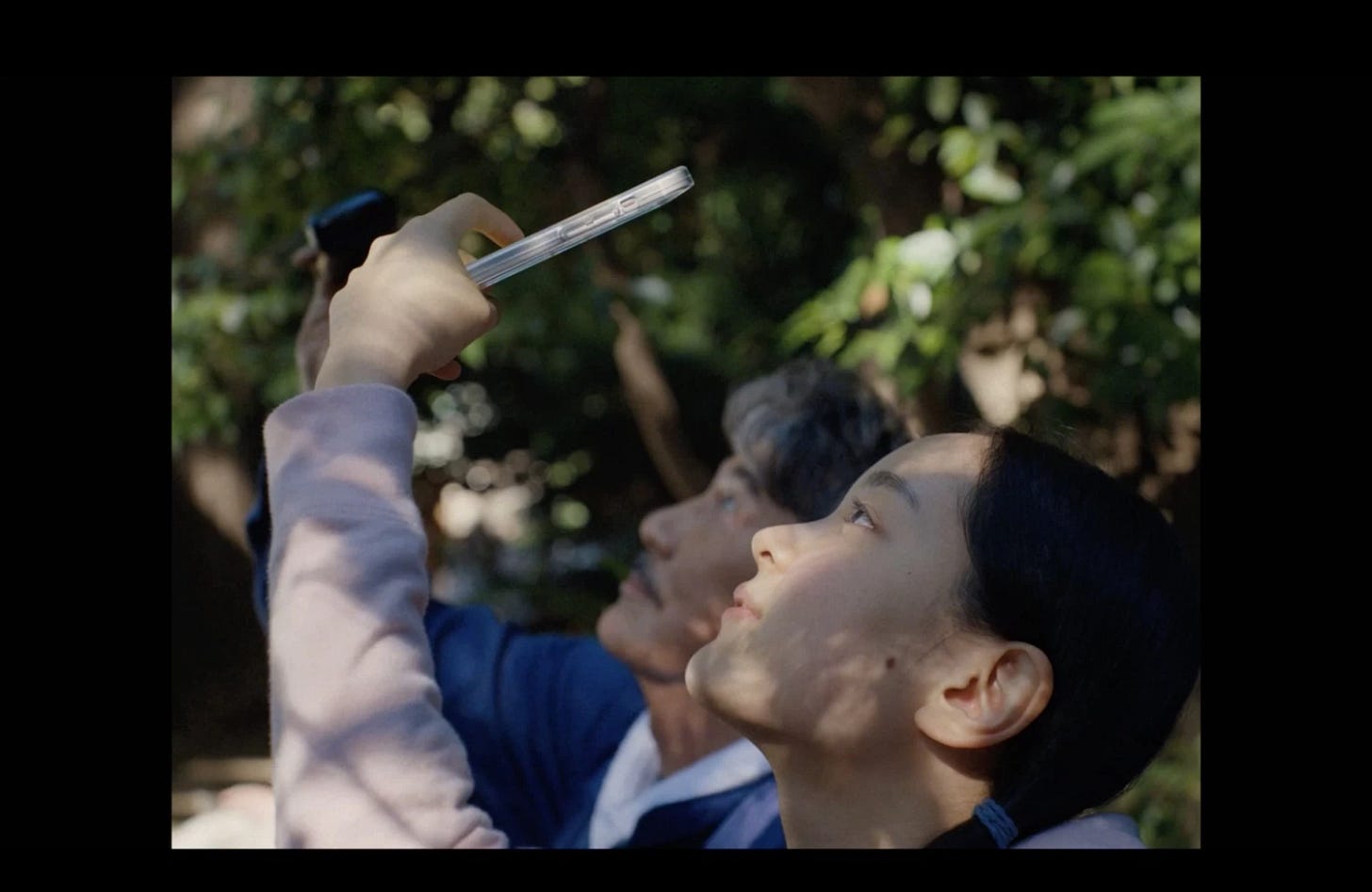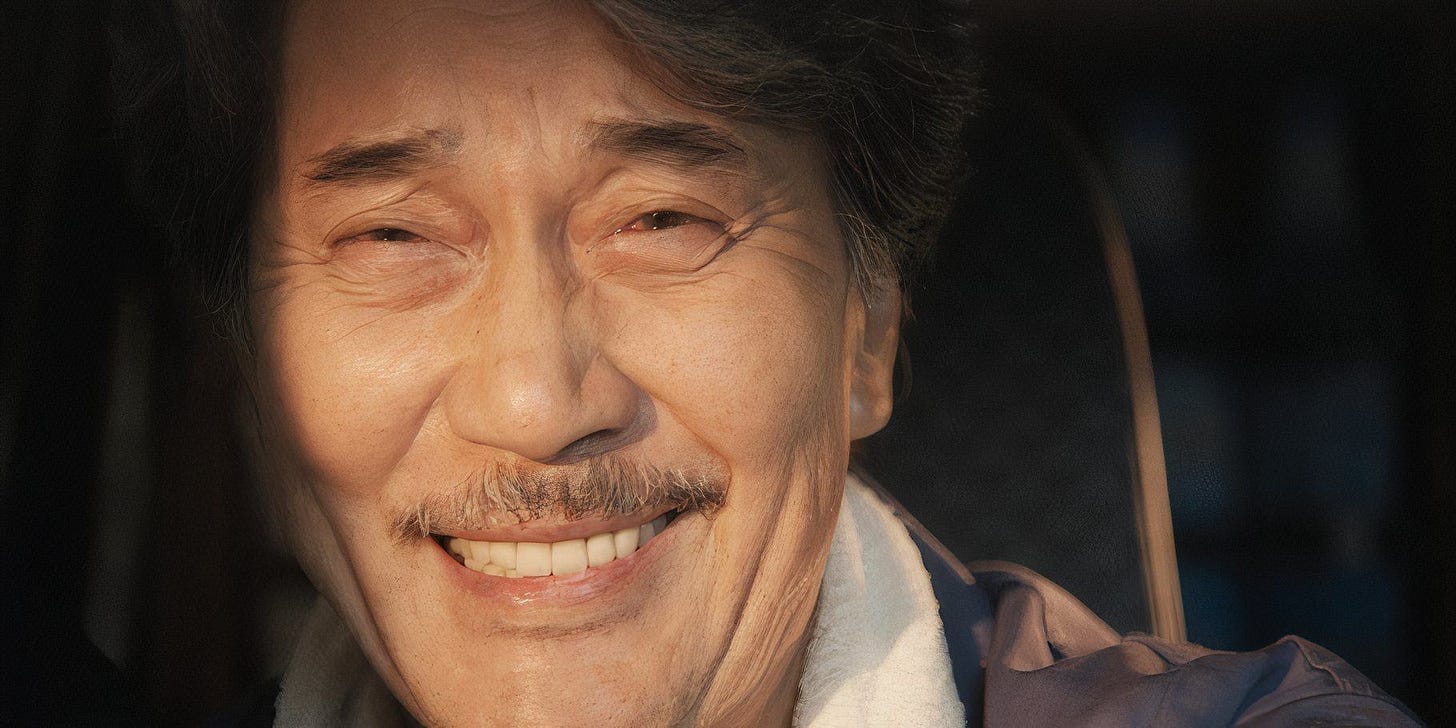and when nobody wakes you up in the morning, and when nobody waits for you at night, and when you can do whatever you want. what do you call it, freedom or loneliness?
The line between solitude and isolation blurs in Milan Kundera’s haunting query above.
It is this question that lingered as I watched Perfect Days, last week.
Cinema is a conversation, a dance of expression and reception. The movies that are the most difficult to write about are the ones that are extremely generous with the space they offer the viewer. Perfect Days is one such movie.
Perfect Days embodies its protagonist, Hirayama, a man of few words who cleans public toilets for a living with the precision of a warrior.
Hirayama barely speaks ten full sentences throughout—inviting us to fill the spaces with our own reflection.
Hirayama has a “mundane” routine that he has perfected, which keeps getting naughtily interrupted by life because the latter has different plans.
Once a writer asked me if routine is something that cages you, and I, as I do best, quoted another writer: a routine insulates you from success, failure, and most importantly, the chaos of the outside world. (Austin Kleon)
Your routine is a map each time you are lost. It is your lighthouse on days when life resembles, well, life. It is your anchor on days when you are spoilt with all the time in the world.
Routine does not cage you, it is a little imprisonment of your own making that can set you free.
Hirayama’s seemingly monotonous life has a rich vein.
His collection of books (which has grown through reading, not just buying), cassettes of stunning music from the 60s and 70s that he plays along his toilet-cleaning trail through the alluring city of Tokyo, plant babies that he nurtures with delicate care, and the photographs he captures throughout the week on his analog camera and collects from the developer every Sunday, will fill you with nostalgia for a life you probably never even had.
I have been reading the Bhagavad Gita every morning since July. It was a gift from Dad, twenty years ago, when I was 10 and had better things to do with my life like watch Ash collect pokemons.
Gita gives you a definition of dharma (one’s duty), but I feel it also nudges you to define dharma for yourself. For me, Hirayama is the closest embodiment of my idea of dharma.
Hirayama performs his job with exceptional commitment, based on his own perception of its importance rather than others' opinions (the scene where he unites a lost child and his mother).
He maintains equanimity when faced with situations or people different from himself. He accepts his own uniqueness and the painful solitude it brings (the scene where he cries after his sister leaves).
And his general movement through life with care and consideration is dharma.
Watching Hirayama and his perfect days, I kept thinking about this line from the song Sapno se bhare naina -
Sukh Hai Alag Aur Chain Alag Hai
Par Yeh Jo Dekhe Woh Nain Alag Hai
Chain To Hai Apna Sukh Hai Paraye
(Happiness is different and peace is different,
But the eyes that see this are different.
Peace belongs to us, happiness doesn’t.)
Hirayama’s aloneness and what he chooses to do with his time on this miserable planet is an act of such quiet acceptance and soft rebellion that it will leave you smiling with tears in your eyes.
See you next Sunday,
Love, Ree
Wondering how you can support me?
You can contribute via GPay or UPI and show The Nook some love here: riya.roy6@axisbank
or,








I had been planning to watch this movie and well, your words have moved me to go and watch it as soon as possible 💖
Such a warm read! 🌸